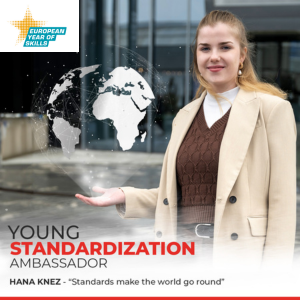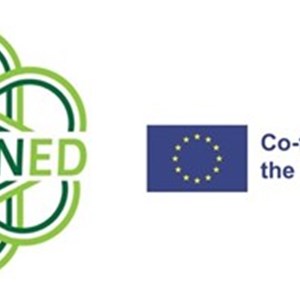NEWS

On the occasion of the European Year of Skills, which continued in 2024, we are relaunching our special campaign: through a series of interviews with standardization professionals, experts and business leaders coming from a variety of backgrounds, we will explore the interaction between innovation, skills and standardization in some of the most relevant sectors for Europe’s long-term competitiveness.

The twin green and digital transitions open new opportunities for the European industry and citizens, in a quickly changing global scenario. But does Europe have what it takes to meet today and tomorrow’s challenges? How can we make sure that it has the skills and the workforce to remain competitive in the global economy? And what is the role of standardization?

The twin green and digital transitions open new opportunities for the European industry and citizens, in a quickly changing global scenario. But does Europe have what it takes to meet today and tomorrow’s challenges? How can we make sure that it has the skills and the workforce to remain competitive in the global economy? And what is the role of standardization?

With the European elections approaching, the twin green and digital transitions open new opportunities for the European industry and citizens, in a quickly changing global scenario. But does Europe have what it takes? How can we make sure that it has the skills and the workforce to remain competitive in the global economy? And what is the role of standardization?

With the European elections approaching, the twin green and digital transitions open new opportunities for the European industry and citizens, in a quickly changing global scenario. But does Europe have what it takes? How can we make sure that it has the skills and the workforce to remain competitive in the global economy? And what is the role of standardization?

The twin green and digital transitions open new opportunities for the European industry and citizens, in a quickly changing global scenario. But does Europe have what it takes? How can we make sure that it has the skills and the workforce to remain competitive in the global economy? And what is the role of standardization?

The Bulgarian Institute for Standardization (BDS) and the Romanian Standards Association (ASRO), in partnership with four universities, are successfully advancing in the implementation of the project “B-Green-ED - Boosting the Green Future via University Micro-Credentials”, funded by the Erasmus+ programme of the European Commission.

Between 24 and 27 October 2023, the 1st Autumn School of Standardization, organized by SIST, Slovenia’s National Standardization Body, took place at the Faculty of Electrical Engineering in Ljubljana. Twenty students from different study programs attended the extracurricular activity. The aim of the Autumn School of Standardization is to bring standardization closer to future engineers and give them the opportunity to get a deeper understanding of standardization and its impact on modern society.

The twin green and digital transitions open new opportunities for the European industry and citizens, in a quickly changing global scenario. But does Europe have what it takes? How can we make sure that it has the skills and the workforce to remain competitive in the global economy? And what is the role of standardization?

The twin green and digital transitions open new opportunities for the European industry and citizens, in a quickly changing global scenario. But does Europe have what it takes? How can we make sure that it has the skills and the workforce to remain competitive in the global economy? And what is the role of standardization?